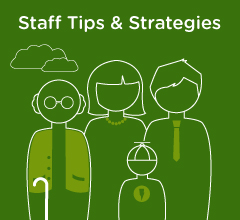How to Address “Mean Girls” Behavior

While bullying has been the subject of many media reports and community-wide programs in recent years, little attention has been directed toward a type of covert bullying that is predominantly found among girls and has been termed “relational aggression.”
Unlike overt bullying, in which clear physically aggressive acts can be visually observed, acts of hidden aggression can be subtle and include such behaviors as a look followed by a giggle, or purposeful, continuous ignoring of the bullying subject. Their concealed nature can often make such acts of aggression difficult to distinguish from other types of social interactions, but their impact can be badly damaging to an individual’s self-esteem and social competency.
This type of covert aggression can be linked to the messages we provide girls about their place in society and how we expose them to specific gender roles. While girls are generally socialized to be nurturing caretakers, boys are socialized to be more aggressive. As a result, boys get many socially acceptable opportunities to practice conflict resolution and deal with physical aggression, while girls seldom get the same opportunities and are often expected to have a natural ability to solve conflicts and express their emotions effectively. Many experts believe that it is this lack of guidance on how to deal with overt aggression and conflict that leads to complex and sophisticated forms of covert aggression that we more commonly see with girls.
Social cues are not the only reason why girls end up employing the more subtle forms of aggression. The establishment and maintenance of relationships play an important role in girls’ lives. More so than boys, girls can recognize and comprehend the intricacies of social interactions. This knowledge can be then used as a “weapon” in an attempt to damage the relationships of a chosen target.
It is imperative for parents and educators of girls to initiate a discussion about the different types of aggression that they may be exposed to or directly responsible for. Proactively educating young girls on the subject, and helping them decipher and challenge the gender messages they are exposed to can be highly helpful in preventing such behaviors or reducing their occurrences. Parents’ interest, attunement and engagement can be key to helping girls understand how to best use their knowledge of social relationships in positive ways. We should not assume that young girls understand how to effectively express anger and other unpleasant feelings. Handling conflicts in a responsible and healthy way is a skill that we need to help young girls develop.
For additional readings please refer to the following list of books on the subject:
- “Odd Girl Out: The Hidden Culture of Aggression in Girls,” by Rachel Simmons
- “Queen Bees and Wannabes,” by Rosalind Wiseman
JSSA’s child and family services department has years of experience helping parents, children and professionals in our community cope with bullying issues. JSSA provides therapy for children and teens, social skills therapy groups, anger management programs, parenting workshops and support groups and presentations on bullying at schools and synagogues.



